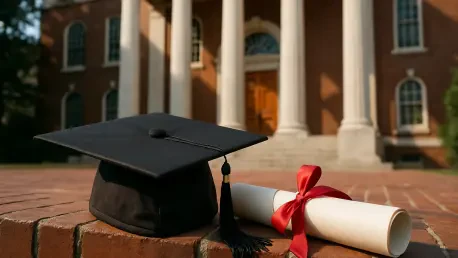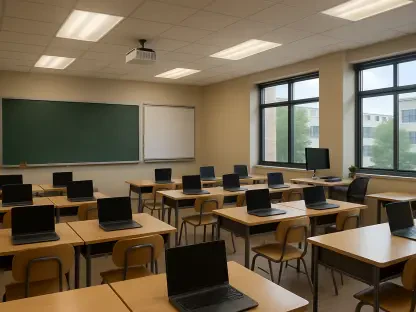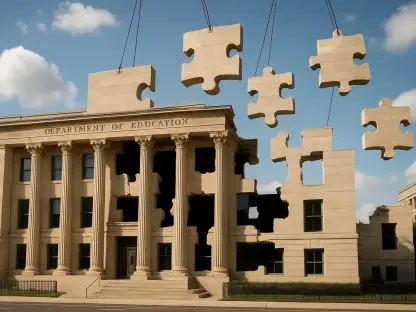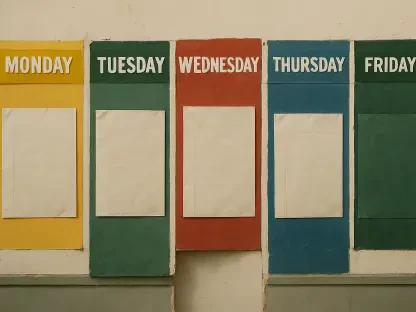Arturo “Cheech” Raygoza’s remarkable transformation from a life shadowed by substance abuse and repeated incarceration to one of academic distinction and advocacy serves as a profound testament to the power of second chances. At 57, this man has not only rewritten his own story but has also become a beacon of hope for others trapped in cycles of hardship, proving that redemption is within reach regardless of past mistakes. His journey, detailed in a compelling narrative by the Santa Ynez Valley Star, showcases how education can act as a catalyst for personal and societal change, breaking down barriers that often seem insurmountable. Raygoza’s path from earning a GED behind bars to graduating with honors from UC Berkeley highlights a narrative of resilience that challenges preconceived notions about those with criminal records. This story isn’t merely about one individual’s success; it’s a broader call to recognize the potential for growth and contribution in everyone, given the right support and opportunities.
Turning Points: Education as a Lifeline
Raygoza’s life took a dramatic shift when he decided to pursue education, a decision that began with earning a GED during his time in jail. Between 2001 and 2014, he endured 13 years cycling through incarceration due to drug-related offenses, a period marked by the weight of addiction and environmental challenges. Yet, within those confines, the act of studying became a quiet rebellion against a predetermined fate. Enrolling at Allan Hancock College in 2016 marked the true beginning of a transformative chapter. There, academic rigor became a tool for rebuilding a shattered sense of self, as Raygoza excelled, earning five associate degrees with honors. His studies in sociology offered a lens to understand his past struggles as part of larger systemic issues, turning personal pain into intellectual curiosity. This academic foundation wasn’t just about credentials; it was about rediscovering purpose and proving that even those society often dismisses can achieve extraordinary things with access to learning.
The culmination of Raygoza’s educational journey at UC Berkeley stands as a historic milestone, not just for him but for his entire family. Graduating with a bachelor’s degree in sociology, he became the first in his lineage to attain such an achievement, a moment symbolizing the breaking of generational barriers. This accomplishment was more than a personal victory; it was a powerful statement on the role of higher education in altering life trajectories for individuals emerging from incarceration. The significance of walking across that stage extended beyond the diploma—it represented a reclaimed identity and a redefined future. Raygoza’s success at Berkeley underscores a critical truth: education can serve as a bridge from despair to opportunity, particularly for those who have faced systemic exclusion. His story challenges institutions to expand access and support for non-traditional students, showing that talent and determination can flourish when given a chance, regardless of a troubled history.
Steadfast Spirit: Overcoming Personal Struggles
Beyond academic halls, Raygoza’s journey is deeply rooted in personal recovery, with over seven years of sobriety standing as a cornerstone of his transformation. Reflecting on a past shaped by neglect and misguided choices, he acknowledges the environmental factors that once ensnared him in a cycle of addiction and crime. Yet, his definition of recovery transcends mere abstinence; it encompasses a deliberate effort to build a life of meaning through dedication to others and intellectual growth. This perspective reveals a mature understanding of redemption as an ongoing process, one that requires constant commitment to betterment. Raygoza’s ability to maintain sobriety while navigating the demands of higher education illustrates a resilience that defies the odds, offering a model for others seeking to reclaim their lives from similar struggles. His story emphasizes that personal change, though arduous, is achievable with the right mindset and support.
Spiritual strength also plays a vital role in Raygoza’s narrative, as he credits a higher power, referred to as God, for guiding him through the darkest periods toward a brighter path. This faith, coupled with a pragmatic approach of taking life one day at a time, reflects a grounded humility despite his significant achievements. Even at 57, there’s an admission of still feeling like growth is a work in progress, a sentiment that humanizes his journey and makes it relatable to many. This balance of spiritual guidance and practical perseverance has fueled a drive that extends beyond personal gain, pushing Raygoza to inspire others facing parallel challenges. His resilience isn’t just about surviving past mistakes but about using those experiences as a foundation for advocacy and service. This aspect of his story highlights the importance of inner strength and belief systems in sustaining long-term transformation, showing how personal battles can be won through a blend of faith and determination.
Championing Reform: Advocacy for the Marginalized
Raygoza’s time in jail exposed a glaring absence of relatable guidance, with authority figures often disconnected from the realities of his struggles. This gap in understanding fueled a passion for systemic reform, crystallized through the founding of the Beyond Incarceration: Greater Education Club (B.I.G.E.) in 2016. Starting with a modest $100, this initiative has grown remarkably, securing over $19,000 in grants to provide mentorship, resources, and a supportive community for formerly incarcerated and socially impacted students navigating higher education. B.I.G.E. embodies Raygoza’s belief that education can be a healing force, offering a pathway out of systemic cycles of failure. His work critiques a justice system that frequently prioritizes punishment over rehabilitation, advocating for environments where individuals can rebuild rather than be repeatedly broken down. This effort stands as a grassroots solution to entrenched problems, driven by someone who has lived through the very challenges he seeks to address.
Expanding his impact, Raygoza engages communities through speaking engagements at forums, schools, and juvenile halls across regions like San Francisco and Contra Costa. His international outreach, spanning locations such as Rhode Island, Guadalajara, and Spain, amplifies a message of hope and resilience on a global scale. These efforts are not just about sharing a personal story but about preventing others from falling into similar traps of addiction and incarceration. Additionally, the involvement of four generations of his family during his UC Berkeley graduation symbolizes the broader ripple effect of his transformation, illustrating how one person’s change can uplift an entire lineage. Raygoza’s advocacy through B.I.G.E. and public platforms underscores the necessity of community-driven solutions, where lived experience informs meaningful support. His vision for inclusivity—welcoming not only the formerly incarcerated but also those interested in justice reform—demonstrates a collaborative approach to tackling systemic issues, fostering dialogue and action across diverse perspectives.
A Legacy of Hope: Reflecting on a Transformative Path
Looking back, Raygoza’s evolution from a life marked by incarceration to one of academic honor and advocacy reveals the profound impact of determination and education. His path, which began with a GED earned behind bars and progressed through multiple degrees at Allan Hancock College to a sociology degree from UC Berkeley, showcases what’s possible when barriers are dismantled. The establishment of B.I.G.E. reflects a commitment to ensuring others can access similar opportunities for redemption and growth. His candid reflections on past struggles, paired with a critique of systemic failures in the justice system, call attention to the urgent need for reform focused on rehabilitation. Moving forward, Raygoza’s aspirations for a Ph.D. signal a continued dedication to merging lived experience with scholarly research on incarceration and social justice. This enduring mission serves as an invitation for society to invest in education and support systems as tools for lasting change, ensuring that stories of transformation like his become the norm rather than the exception.









